Stay In Touch!
Sign up for occasional email updates about upcoming events, volunteer & job opportunities, farm happenings, and more.
For 10 years, Unadilla Community Farm has run a variety of education programs, offering an immersion into a rural, off-grid sustainable way of life. Through a mix of hands-on experience and classroom hours, participants have learned skills related to no-till organic farming, regenerative agroforestry, permaculture design, natural building, foraging, herbalism, plant-based cooking, food preservation, food safety, conscious communication, fundraising, and more. Our current education work includes a seasonal paid Fellowship, a Volunteer Program open to the public, and on-site Research. Scroll down for details.
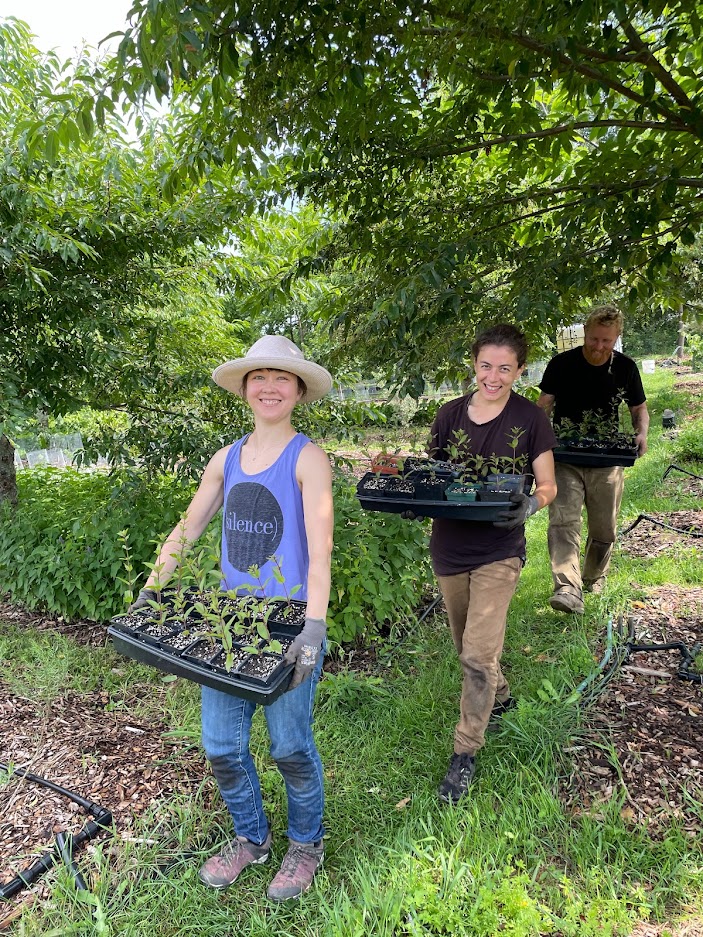
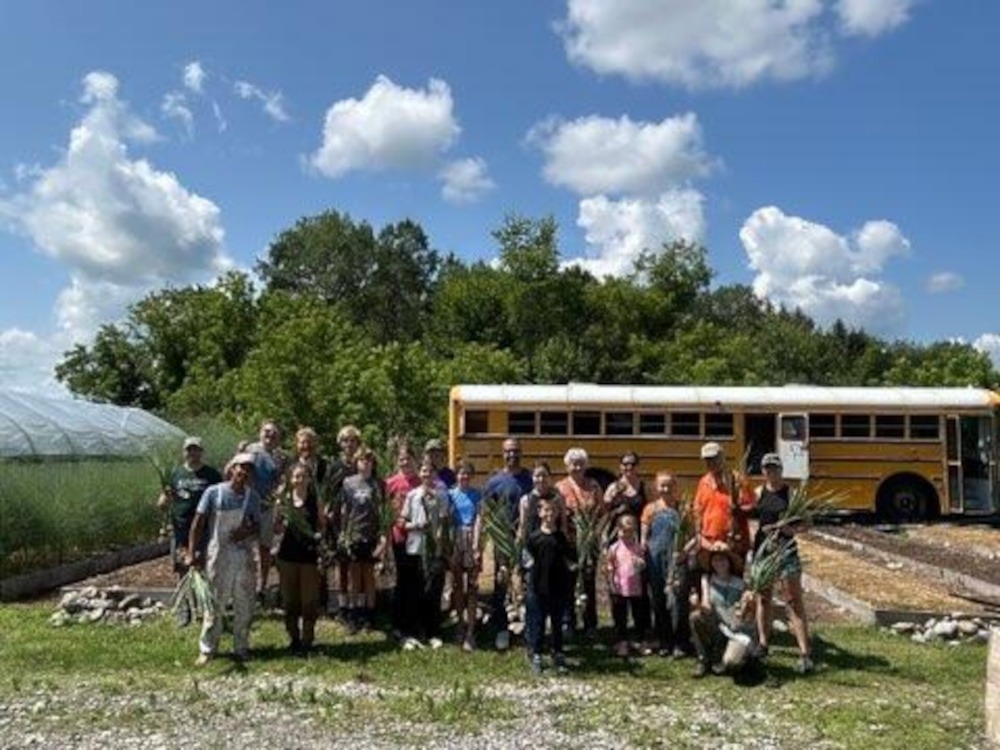
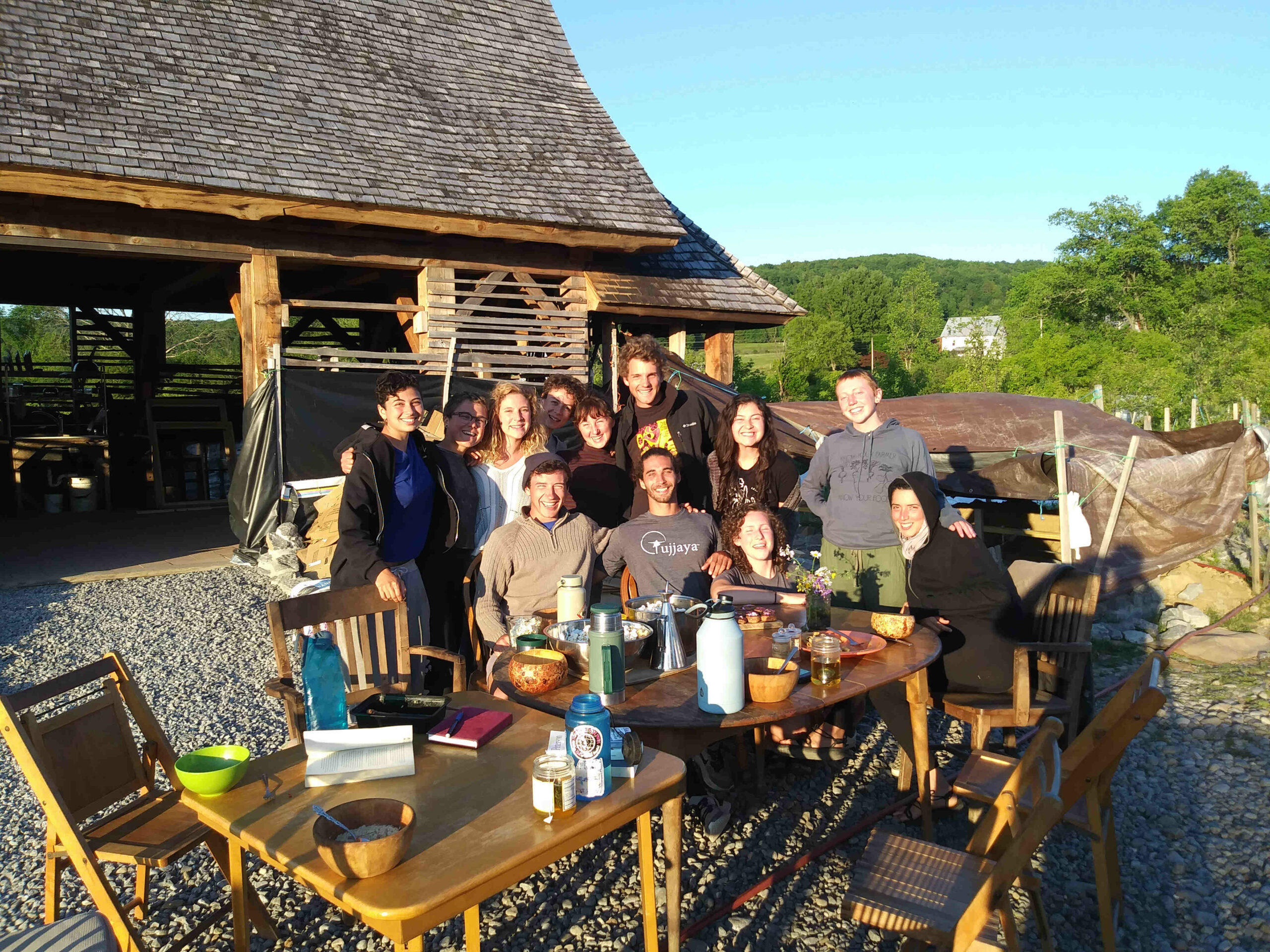
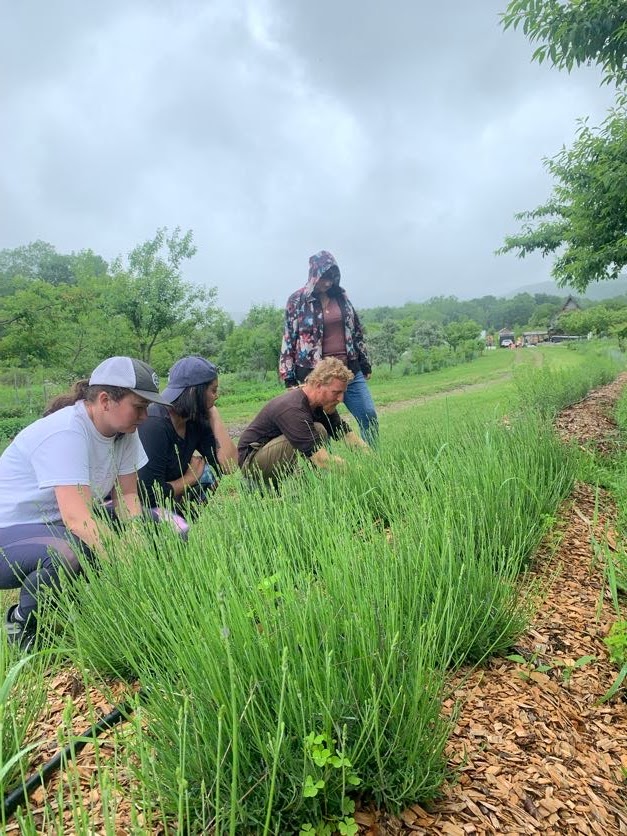
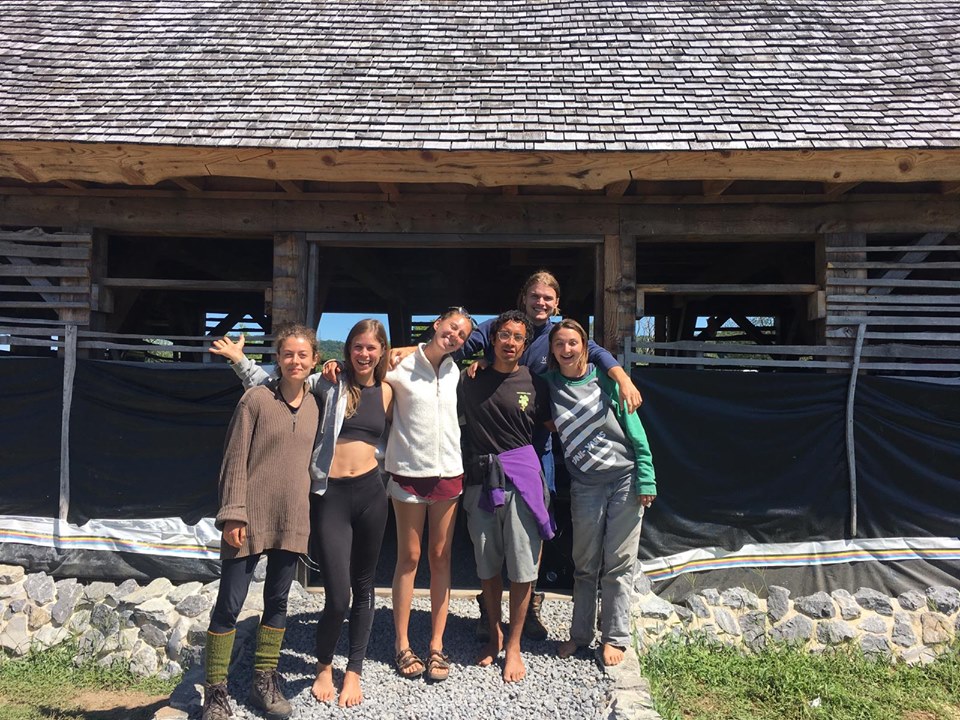
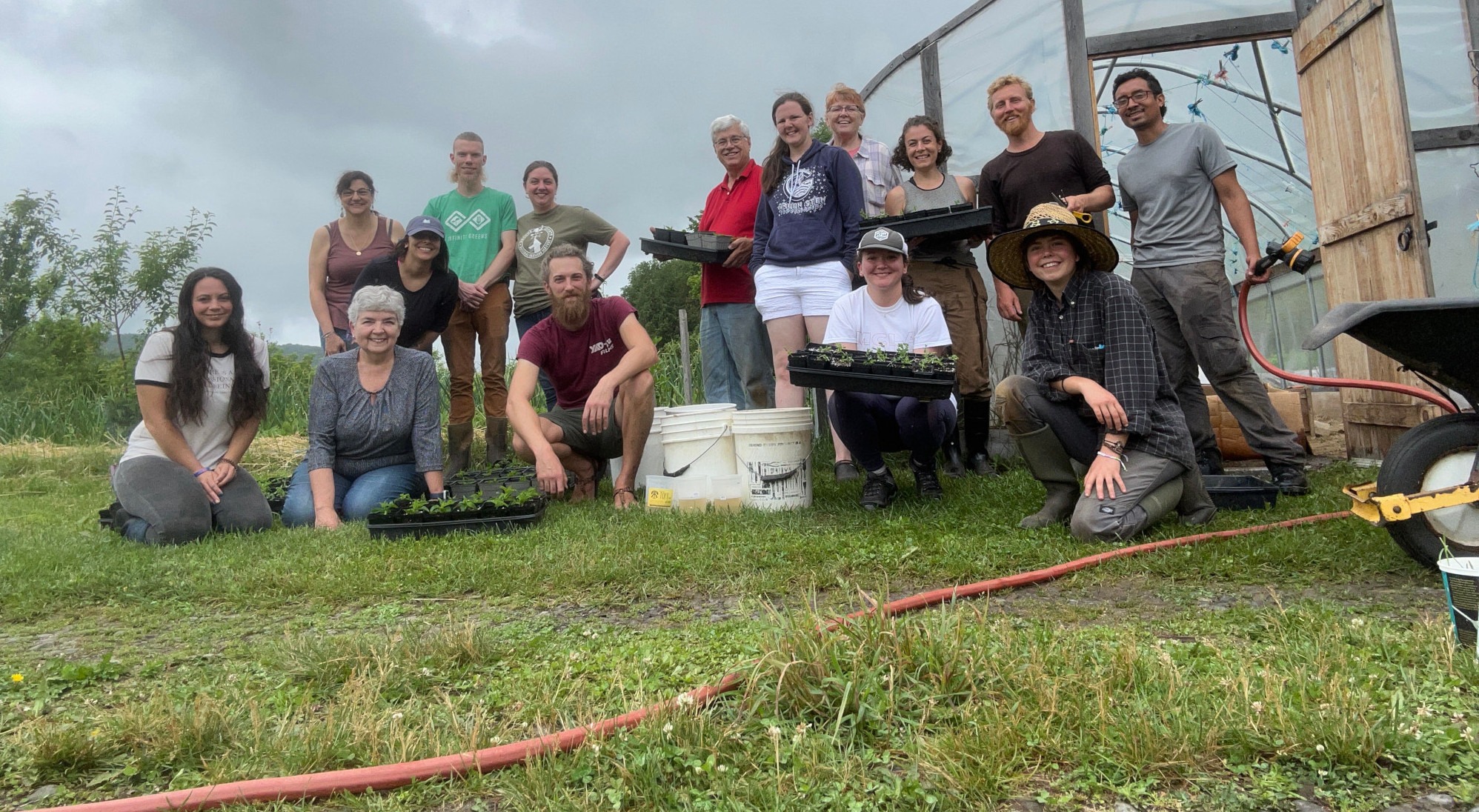
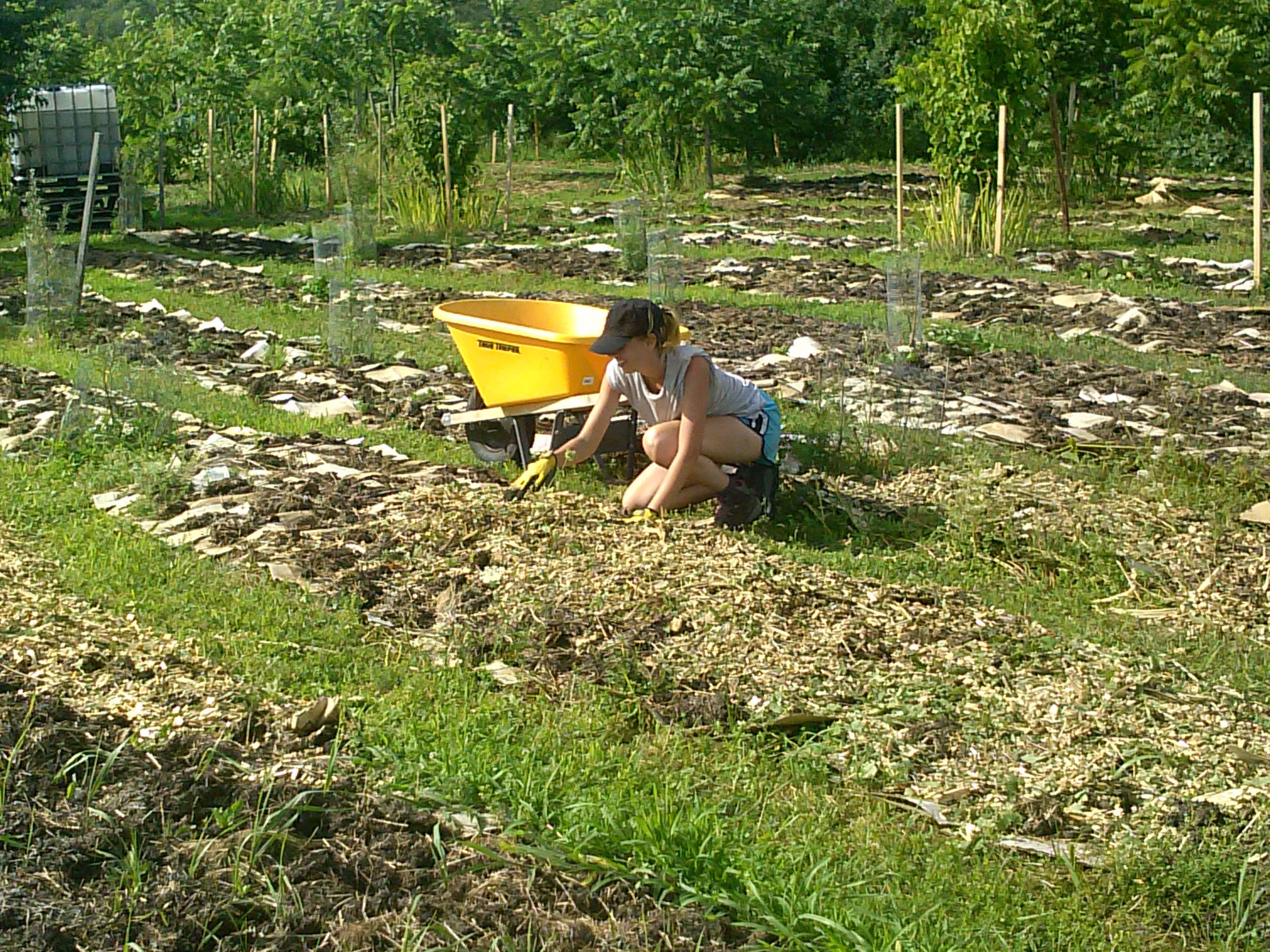
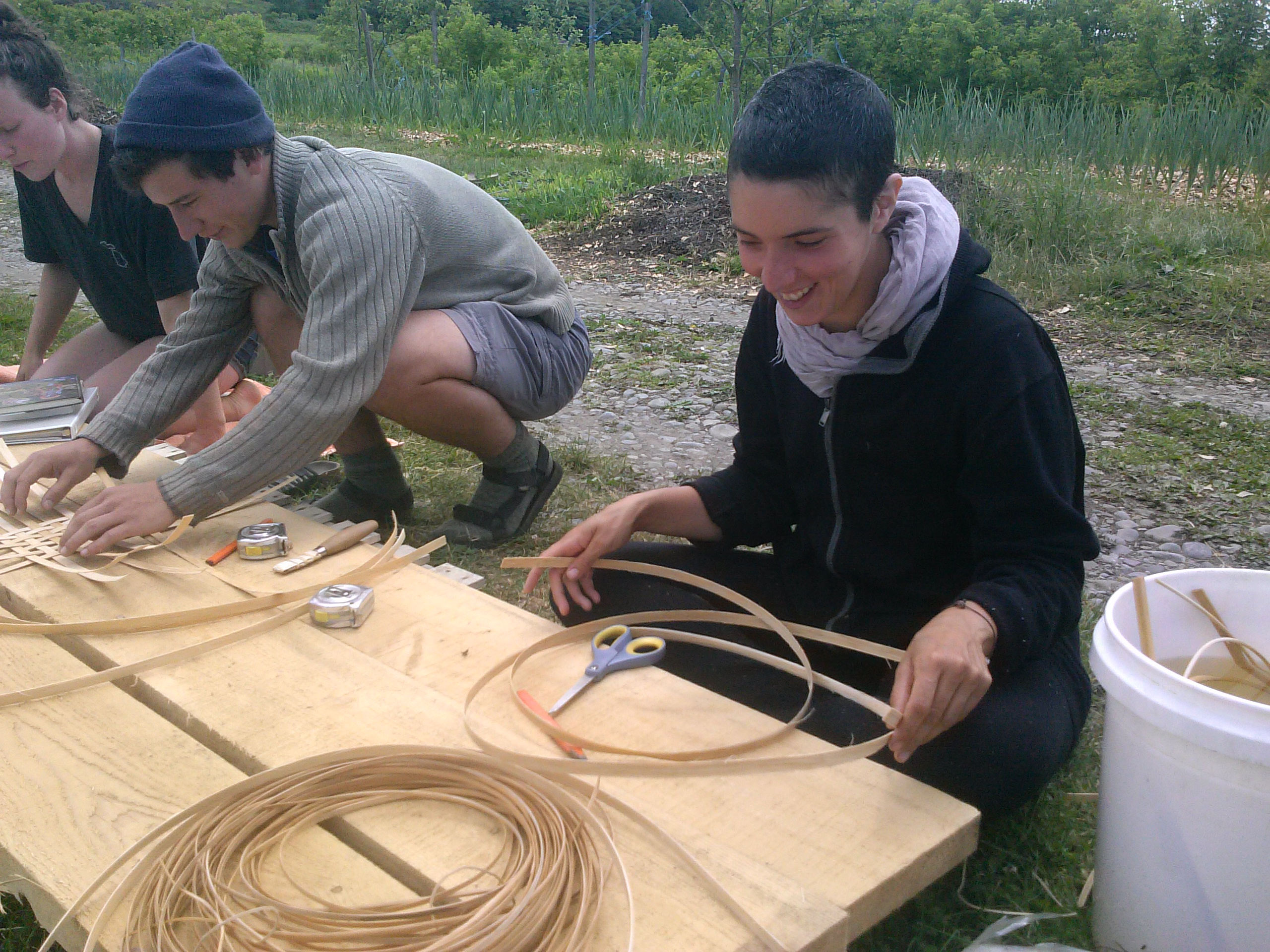
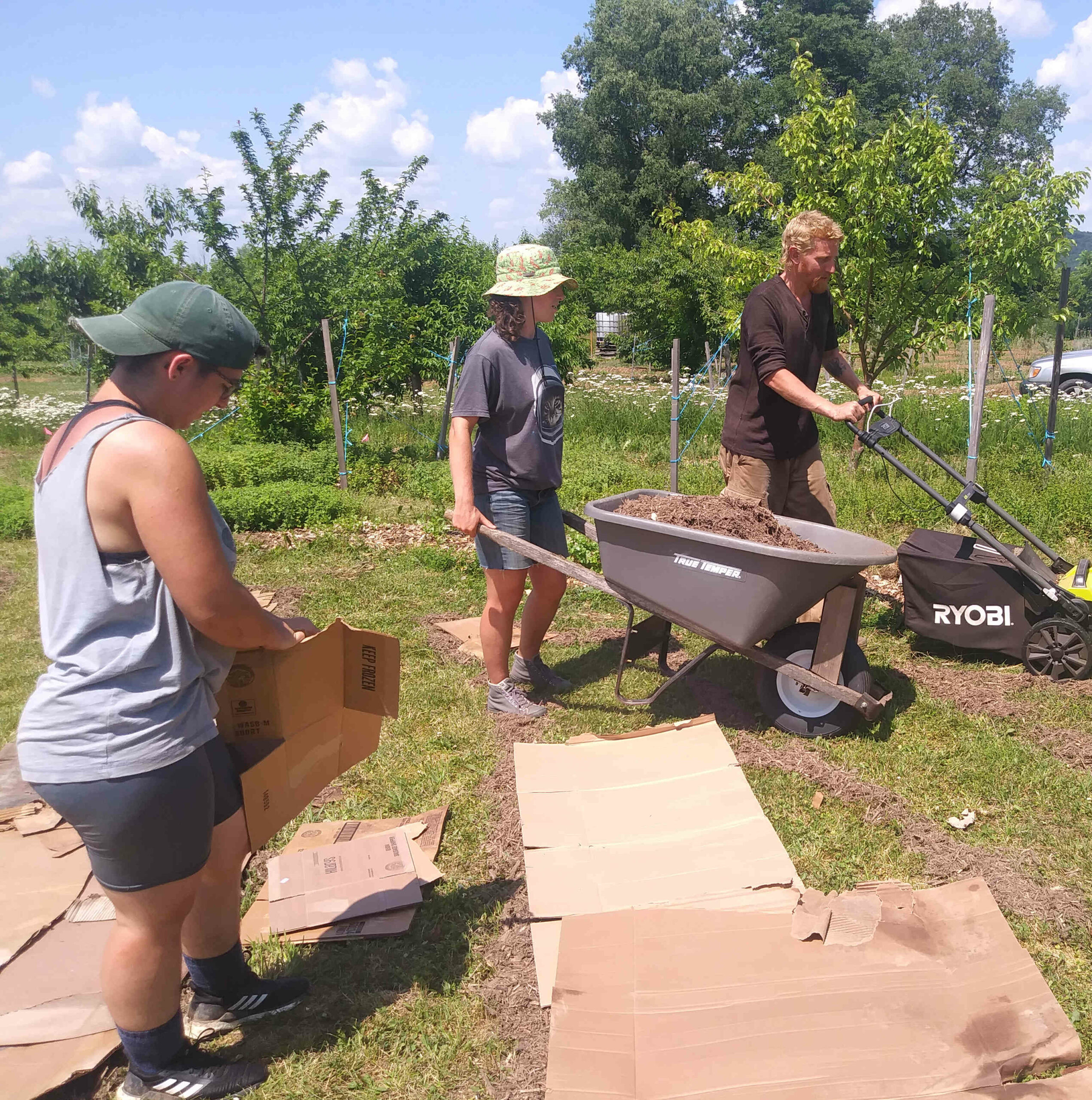
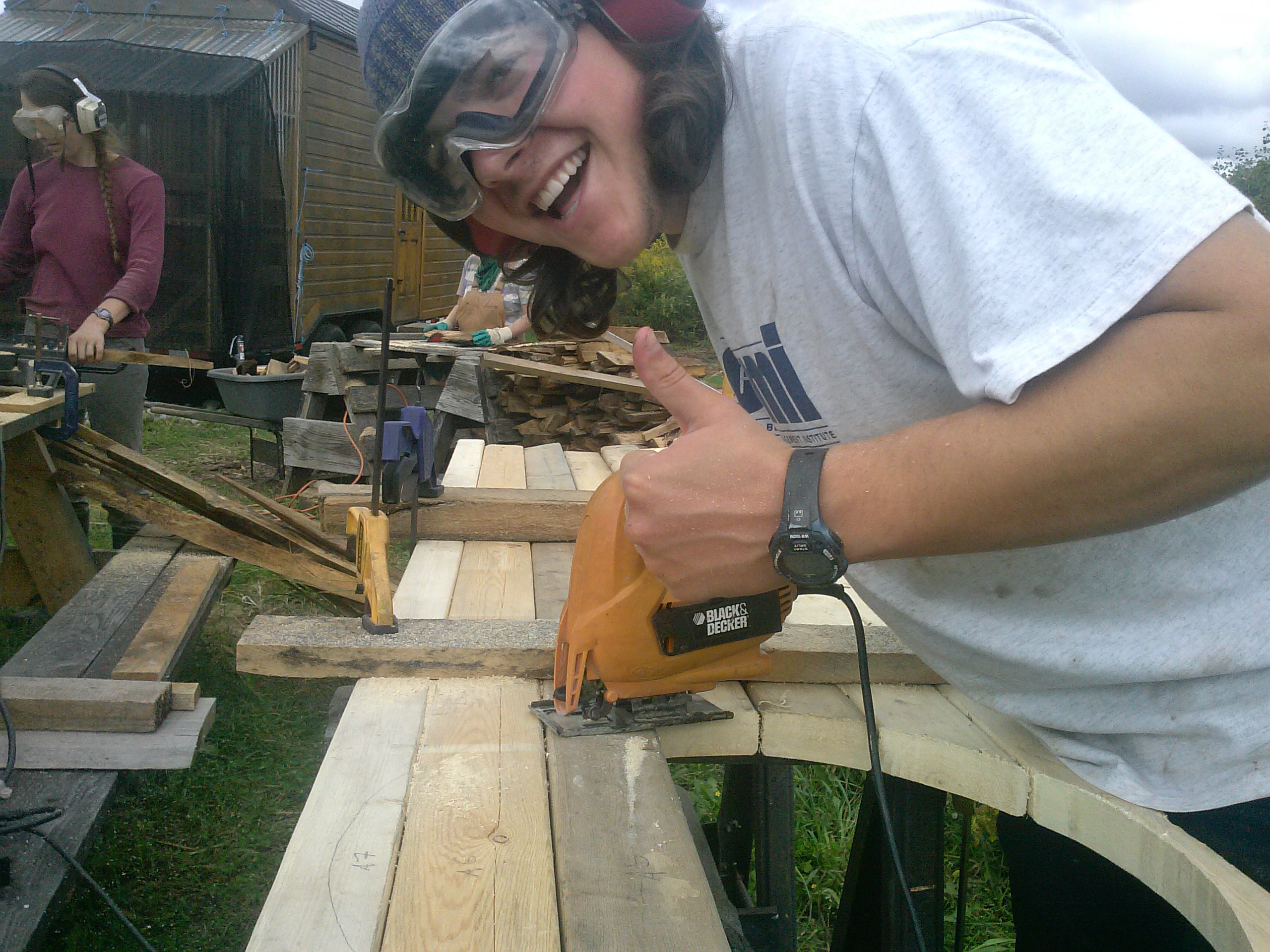
Come help out on the farm, learn new gardening skills, and assist with our food access and herbal aid work!
Throughout the growing season from May-October, we welcome volunteers to assist with production and harvesting for our food access and herbal aid work. Tasks include seeding; transplanting; plant propagation; harvesting; garlic cleaning; and more.
Visit our Events Calendar to learn more and sign up for Community Volunteer Days.
In addition to our monthly volunteer days, contact us at info[at]unadillacommunityfarm.org if you’d like to volunteer at other times. We welcome one-time volunteers as well as returning volunteers who commit to a recurring volunteer schedule.
Participants in our volunteer program can count their hours towards experiential course credit requirements, community service requirements, and volunteer paid time off programs for corporate employees.

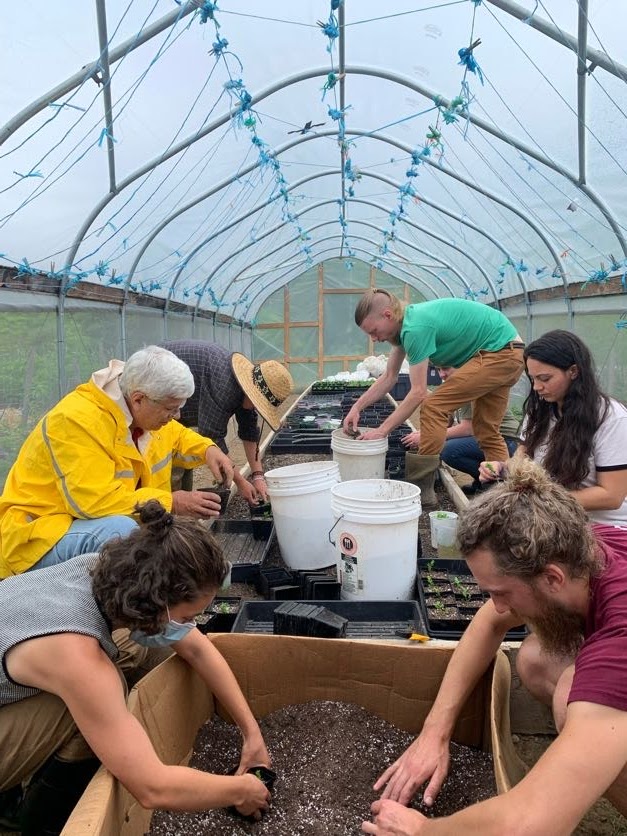
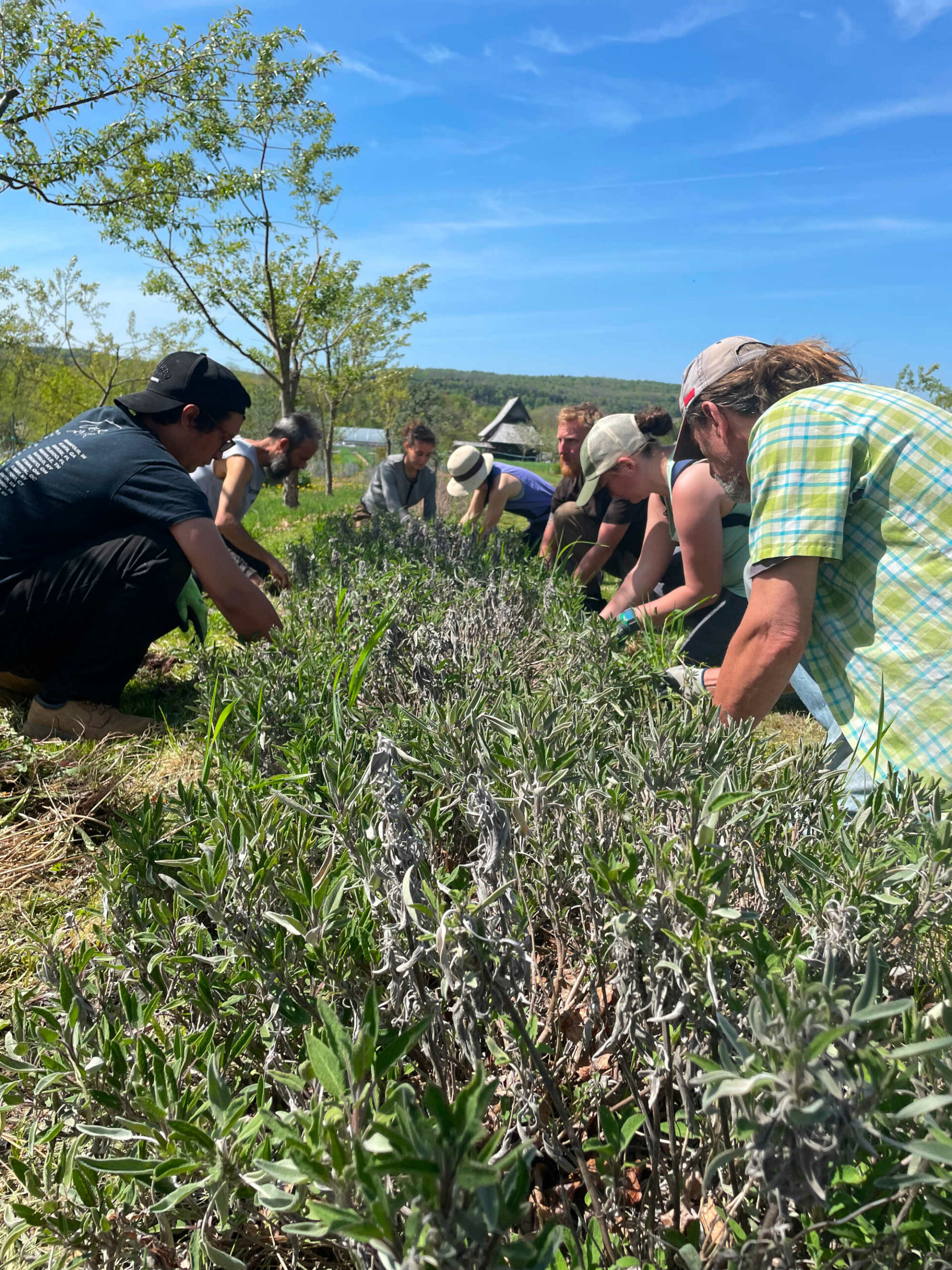
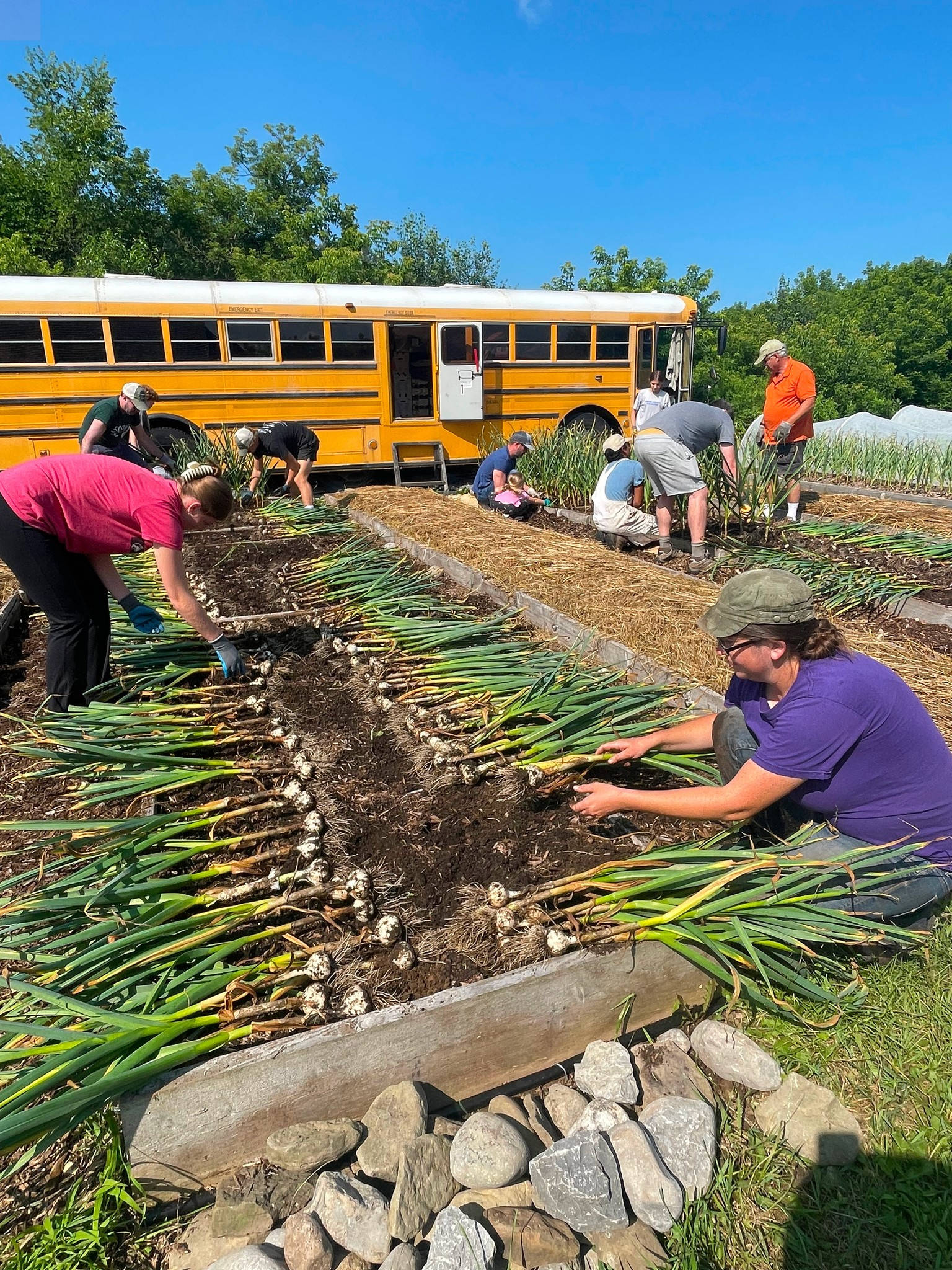
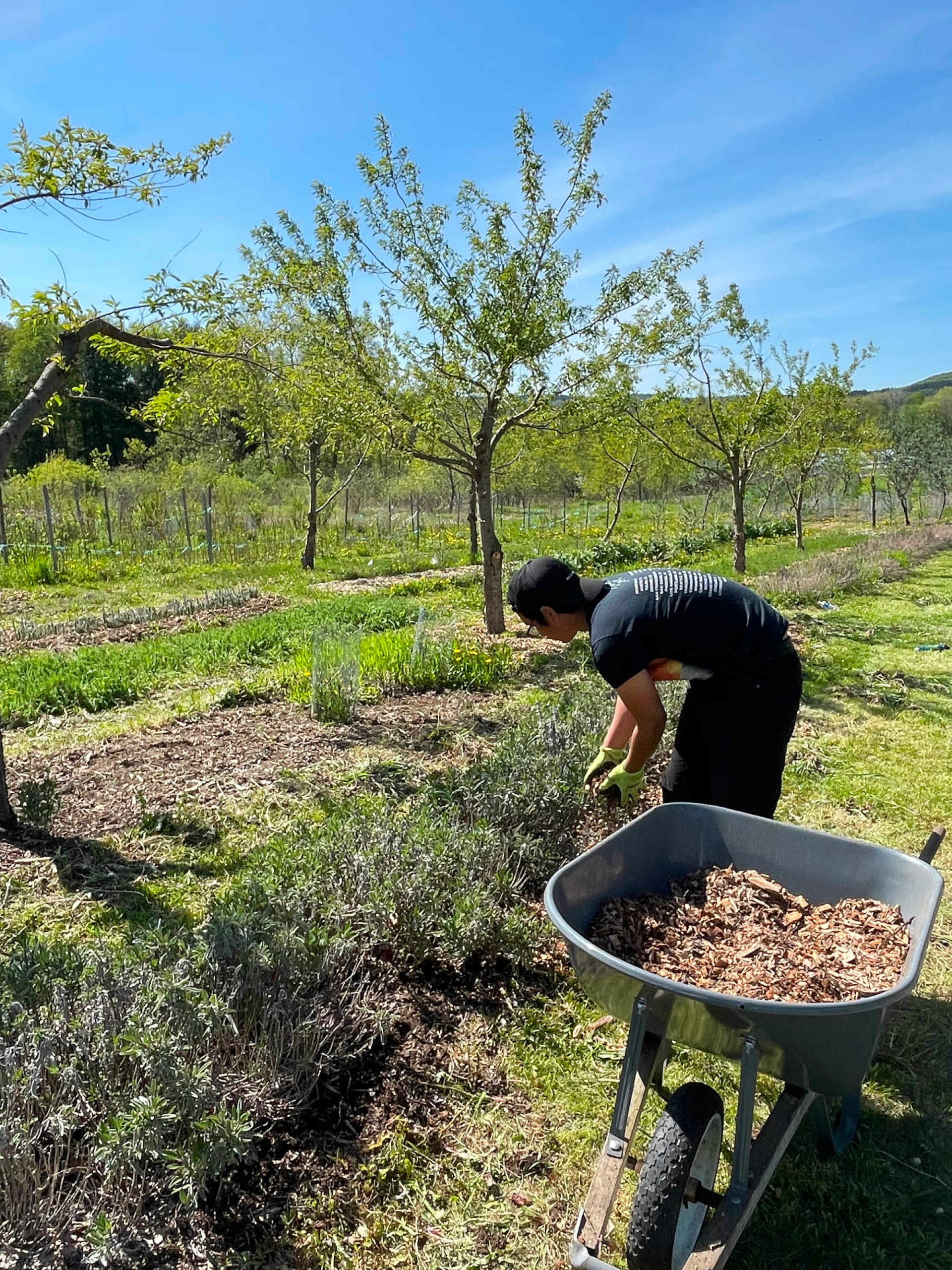
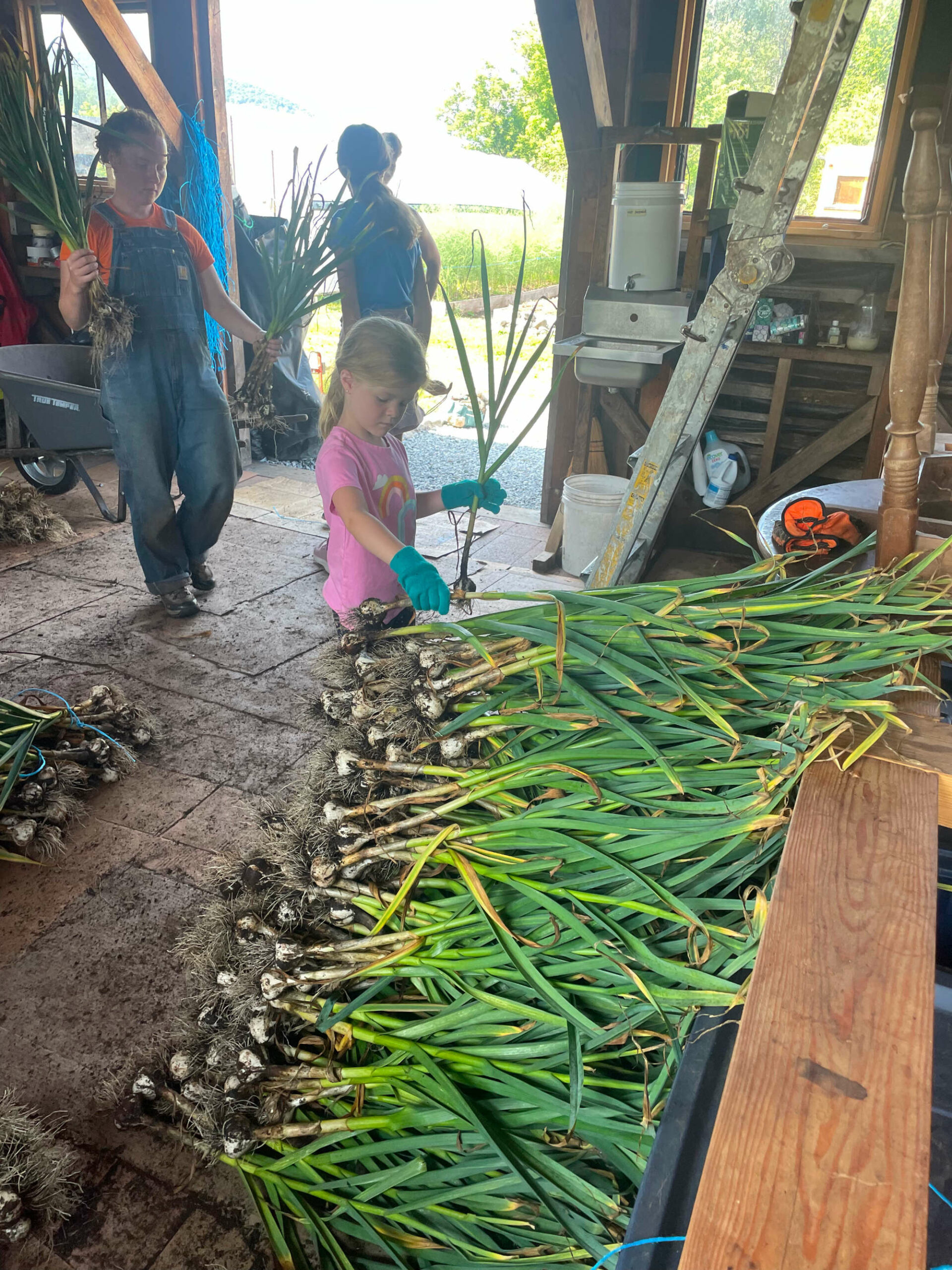
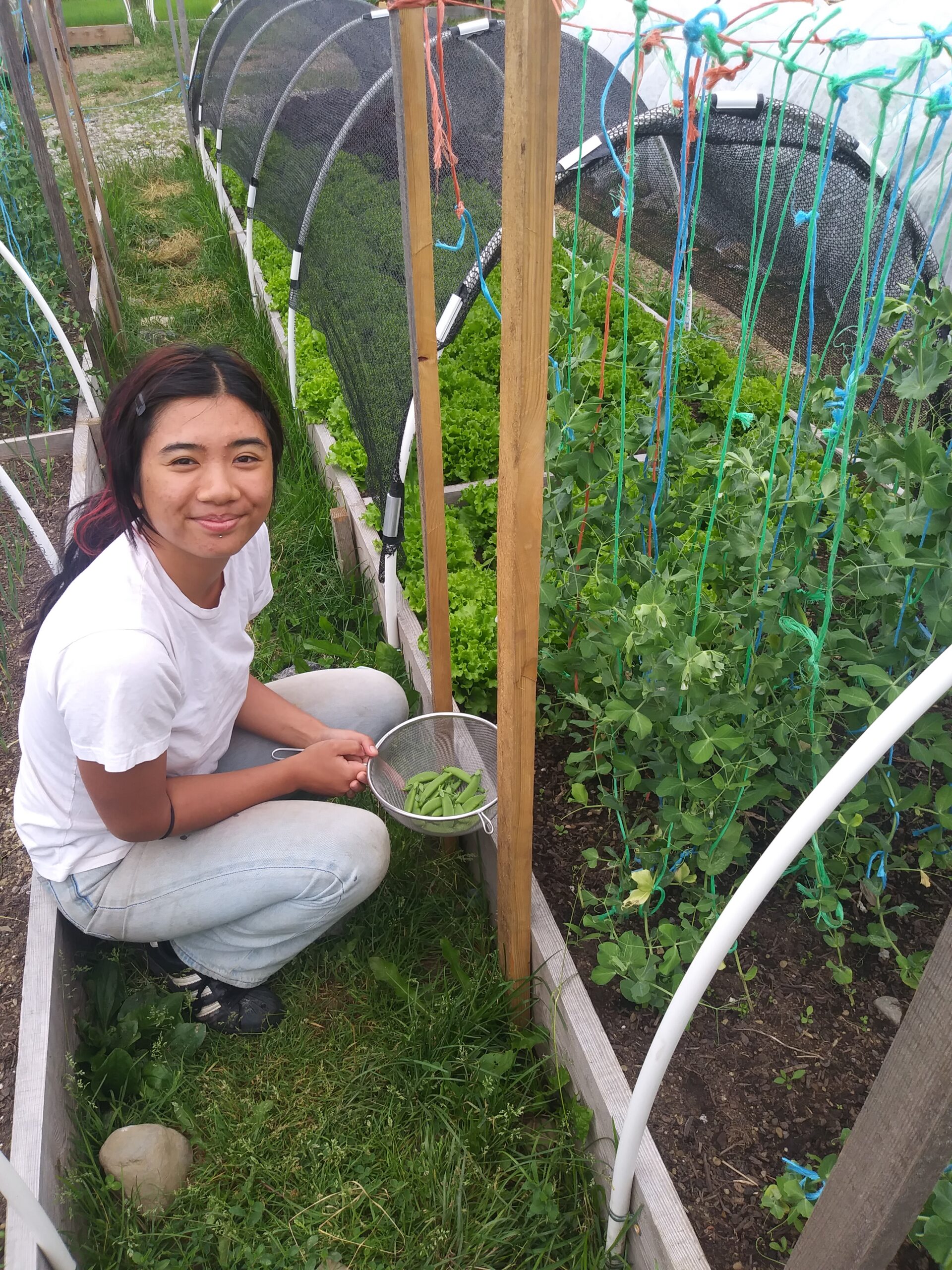
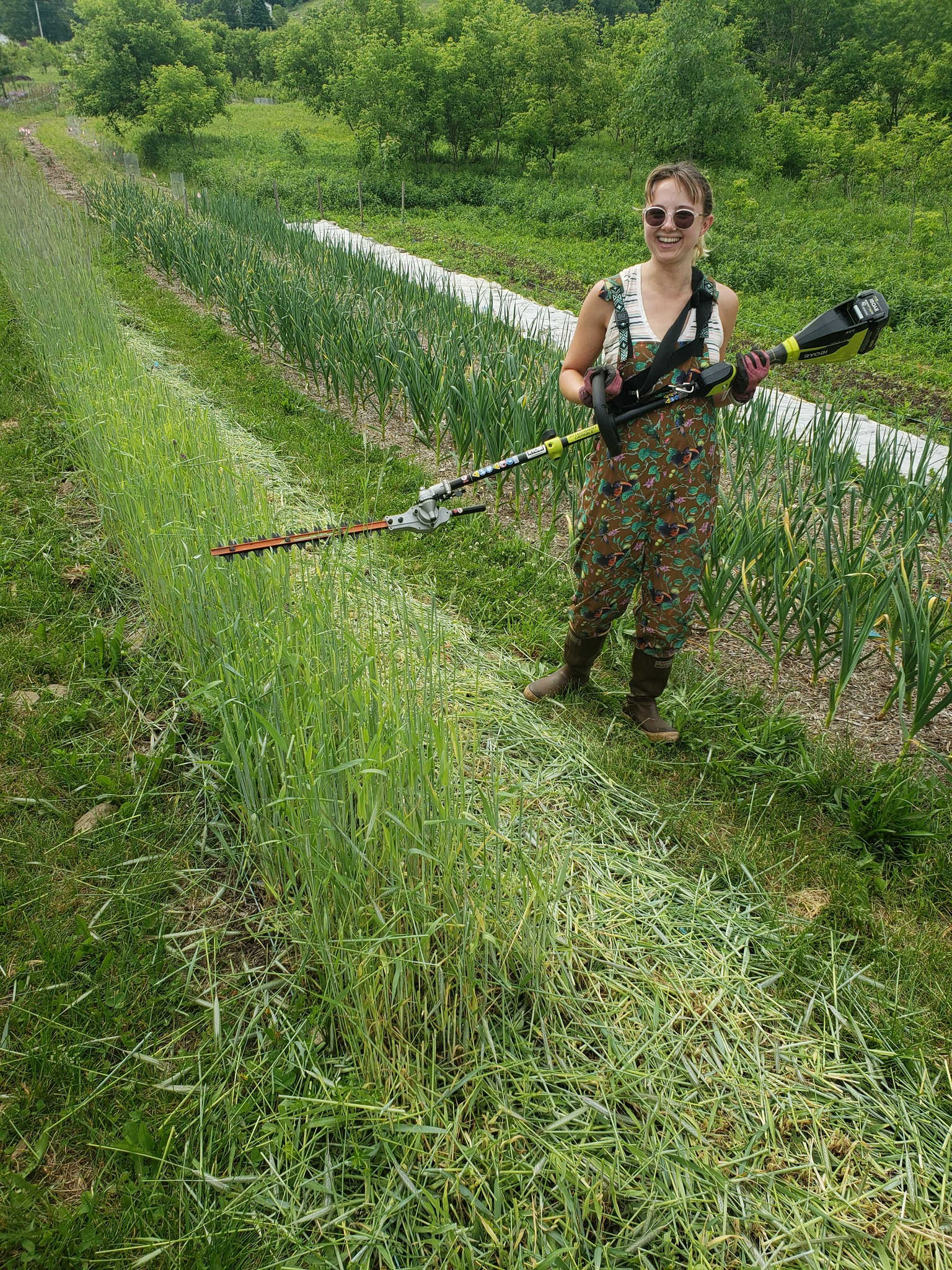
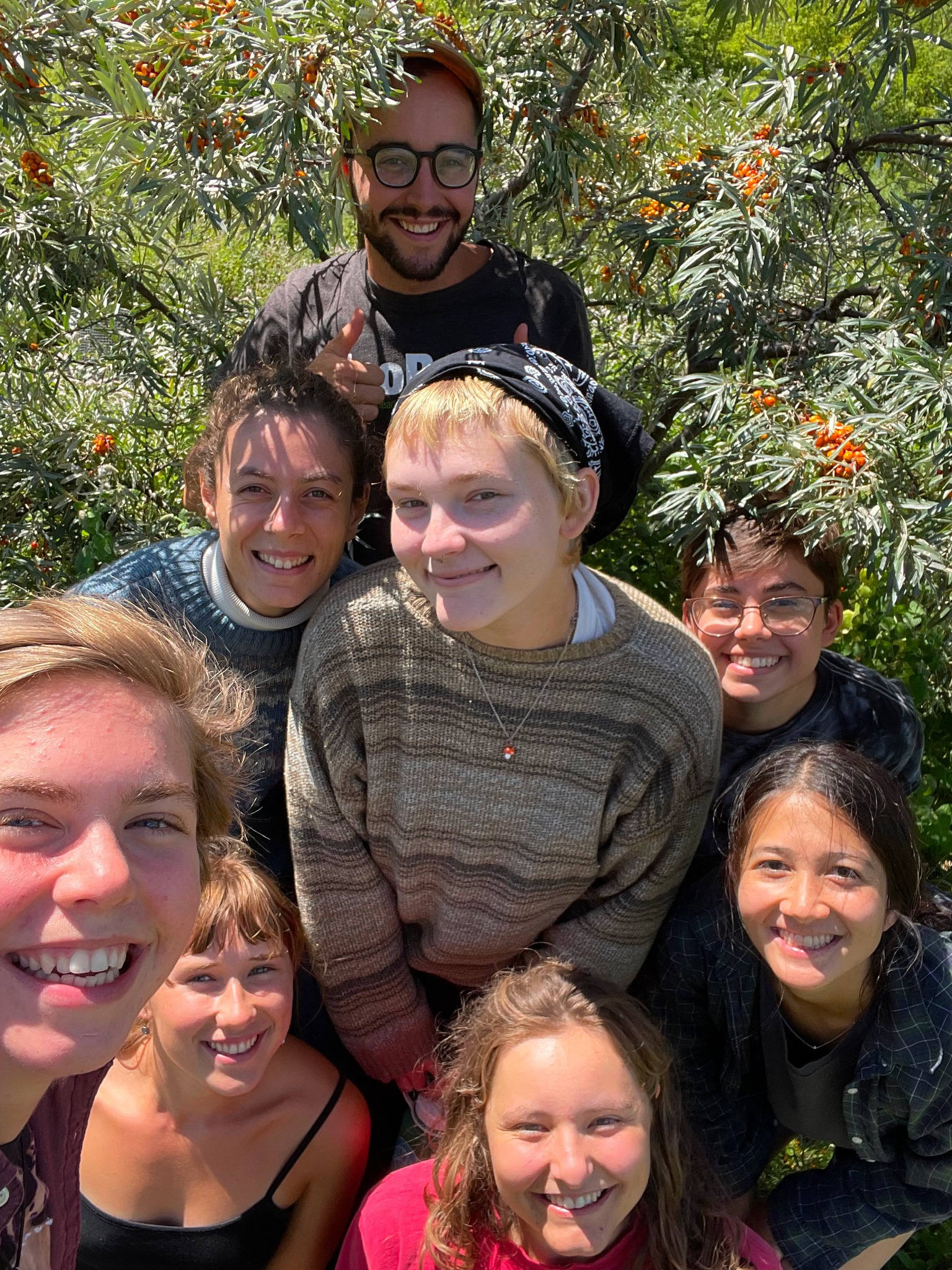
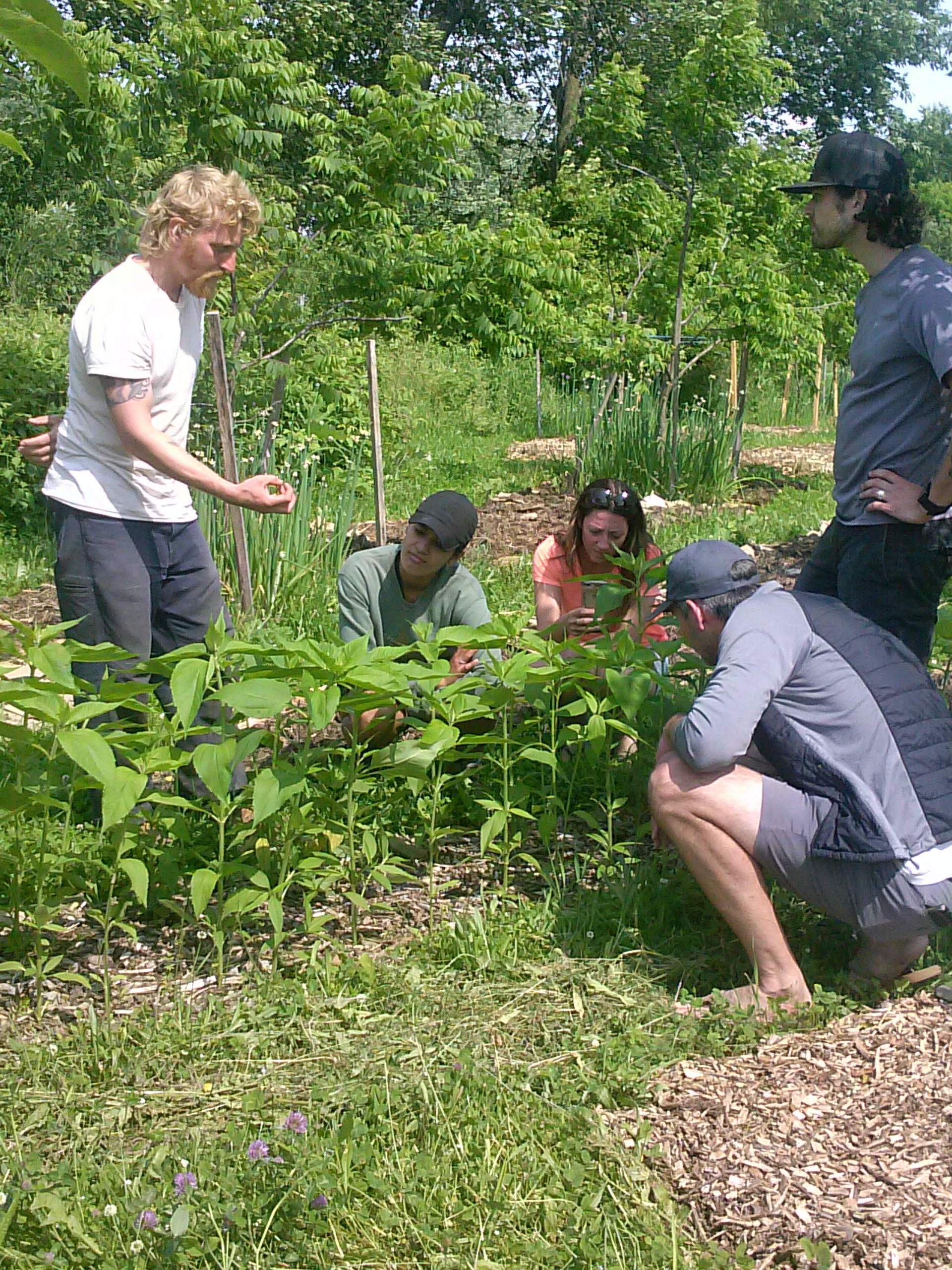
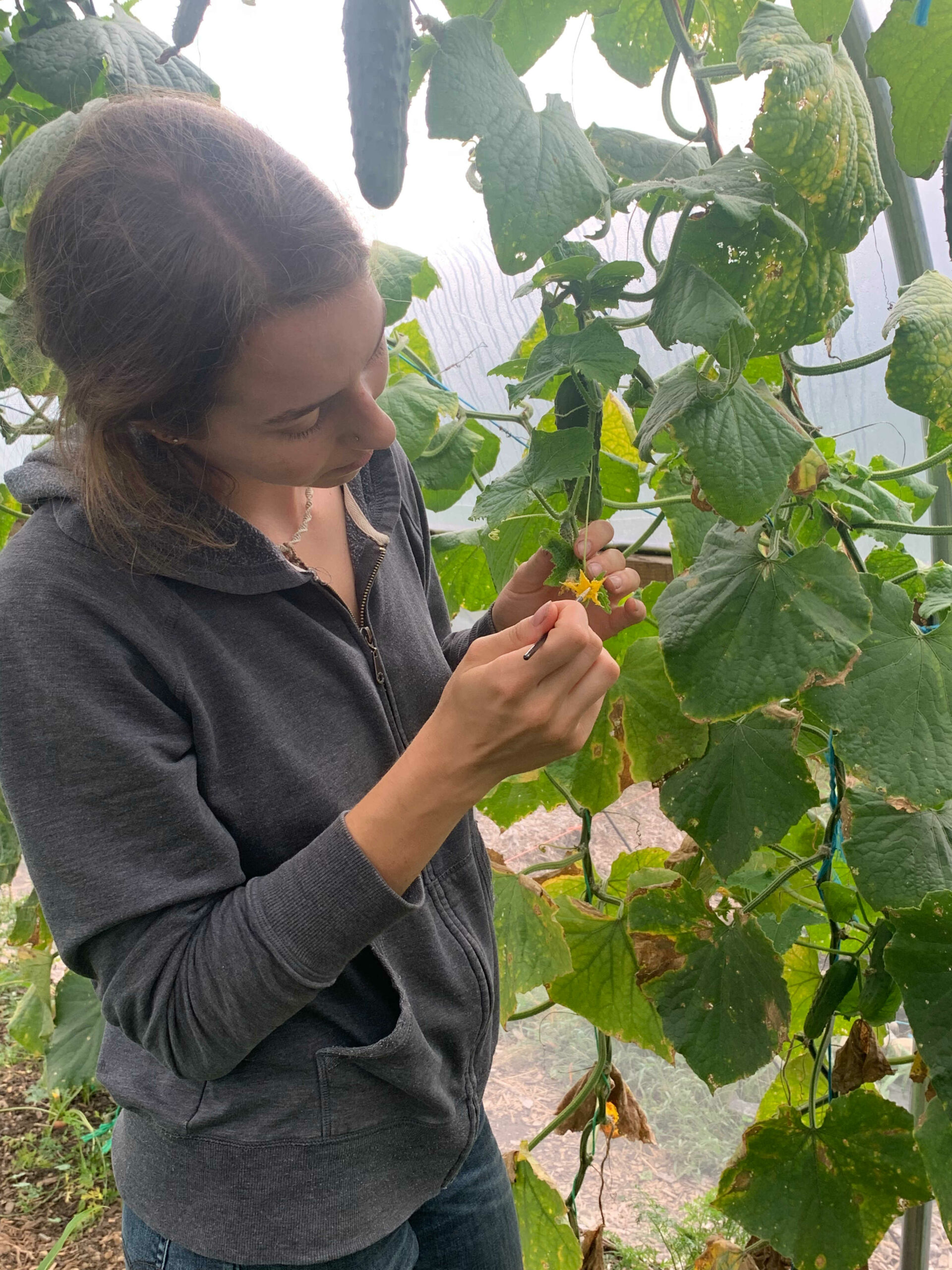
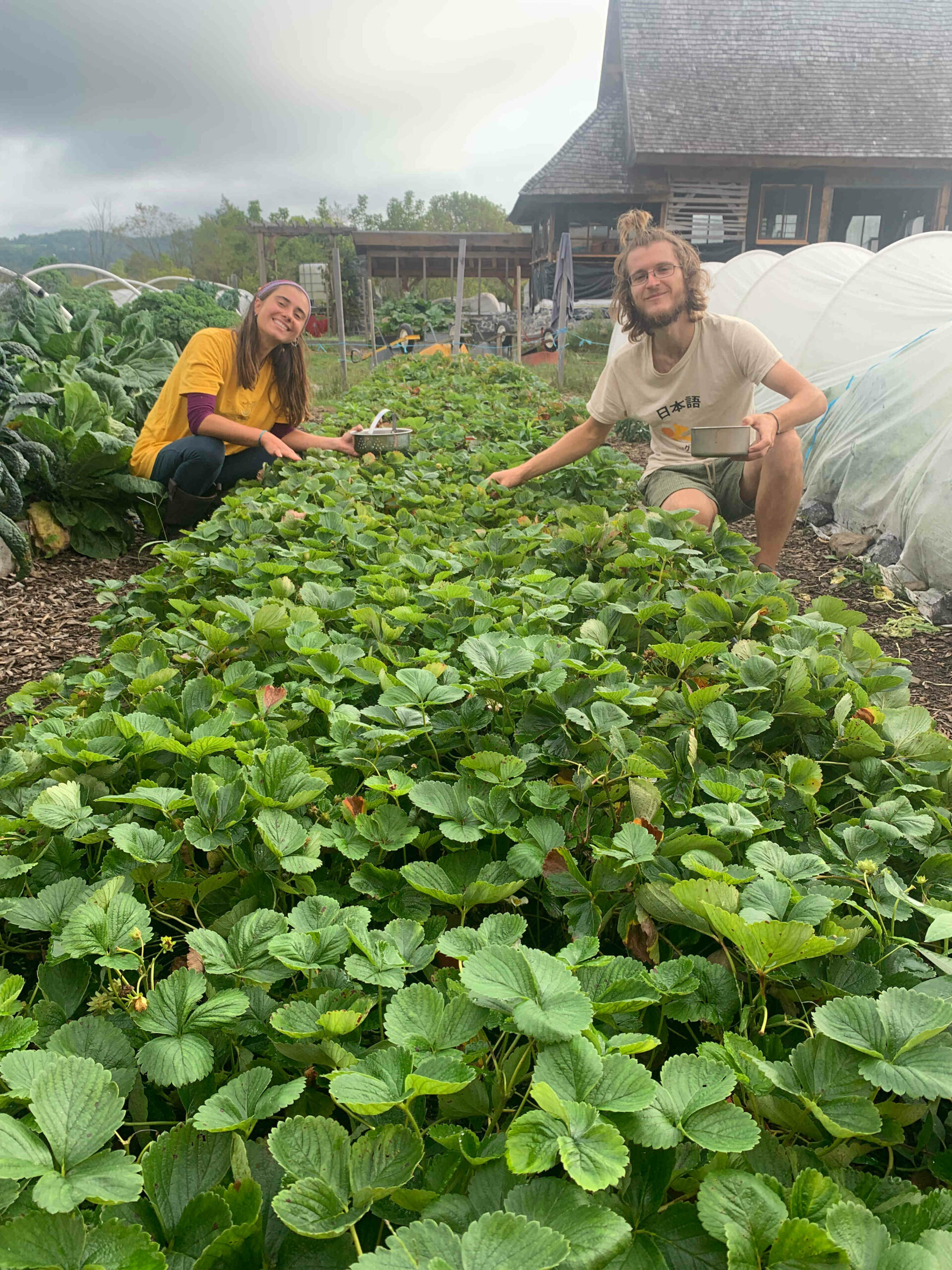
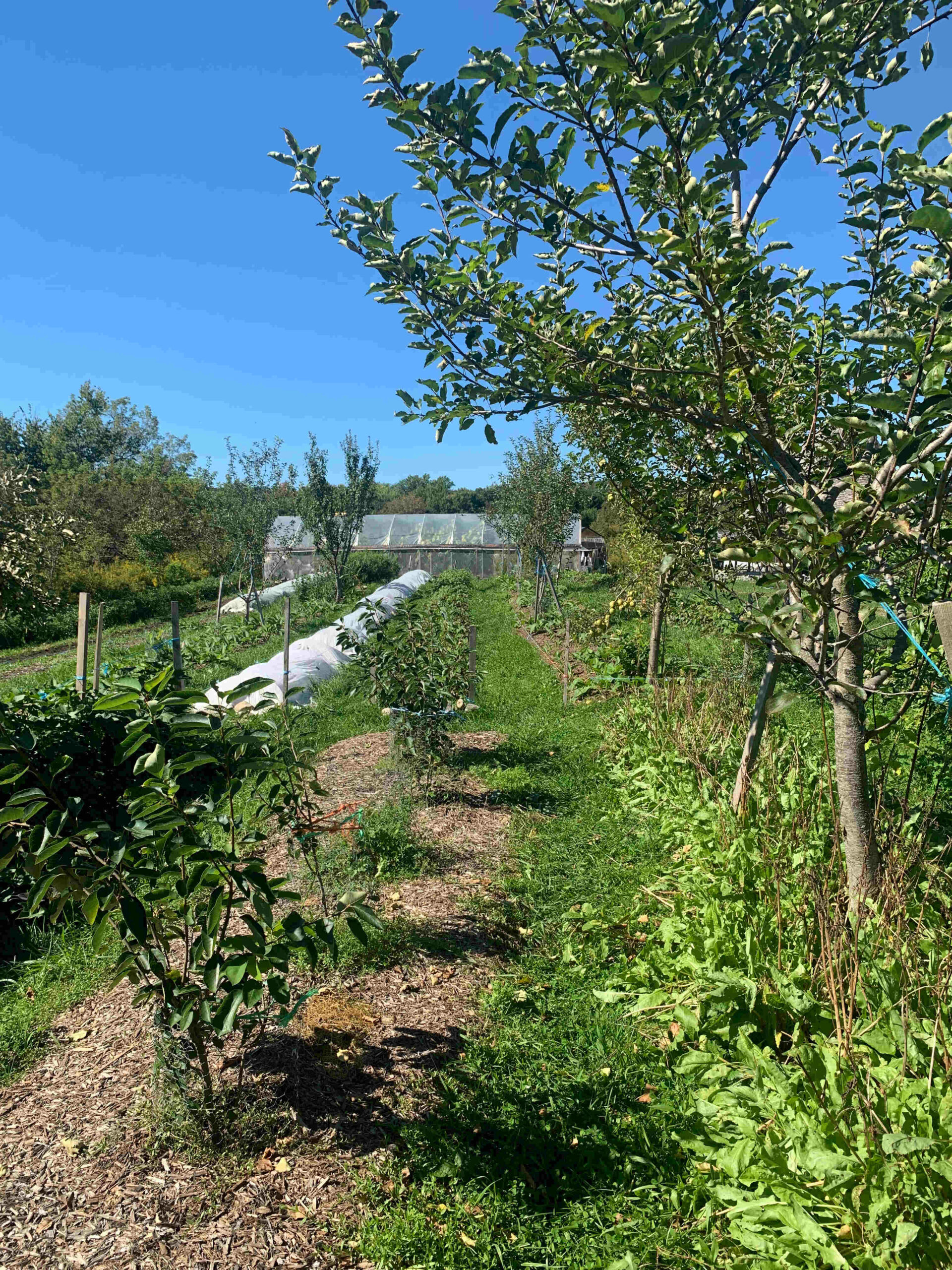
Our Farm Fellowship is a paid season-long commitment wherein fellows help to run the day-to-day operations of the farm. Under the mentorship of the farm’s Project Manager, fellows will learn how to: 1) tend to a food forest by applying principles of no-till organic farming, regenerative agroforestry, and permaculture design, with a focus on growing perennial fruits & herbs, cover crops, and annual vegetables; 2) harvest and pack crops for the farm’s Food Access & Herbal Aid Programs; and 3) help to carry out community volunteer days engaging members of the public in farm tasks such as planting and harvesting.
This is an outdoor, physical job. Farming often involves repetitive tasks, such as weeding, mulching, and harvesting. These humble field tasks are the backbone of our operation and this is what the fellows will be focused on learning and executing, to ensure the planting, care & maintenance, and harvesting of crops for donation to food pantries, mutual aid groups, and free herbal clinics.
The fellowship focuses on experiential, hands-on learning, where fellows work alongside the farm’s senior staff, to learn how to efficiently carry out sustainable farming techniques at-scale. Optional weekly classes are taught by the farm’s Project Manager to provide an opportunity for more in-depth learning for tasks learned in the field. Class topics include: farm/garden design, food forest design, irrigation system design, dynamic accumulator plants, tiny home design, off-grid photovoltaic systems, and more.
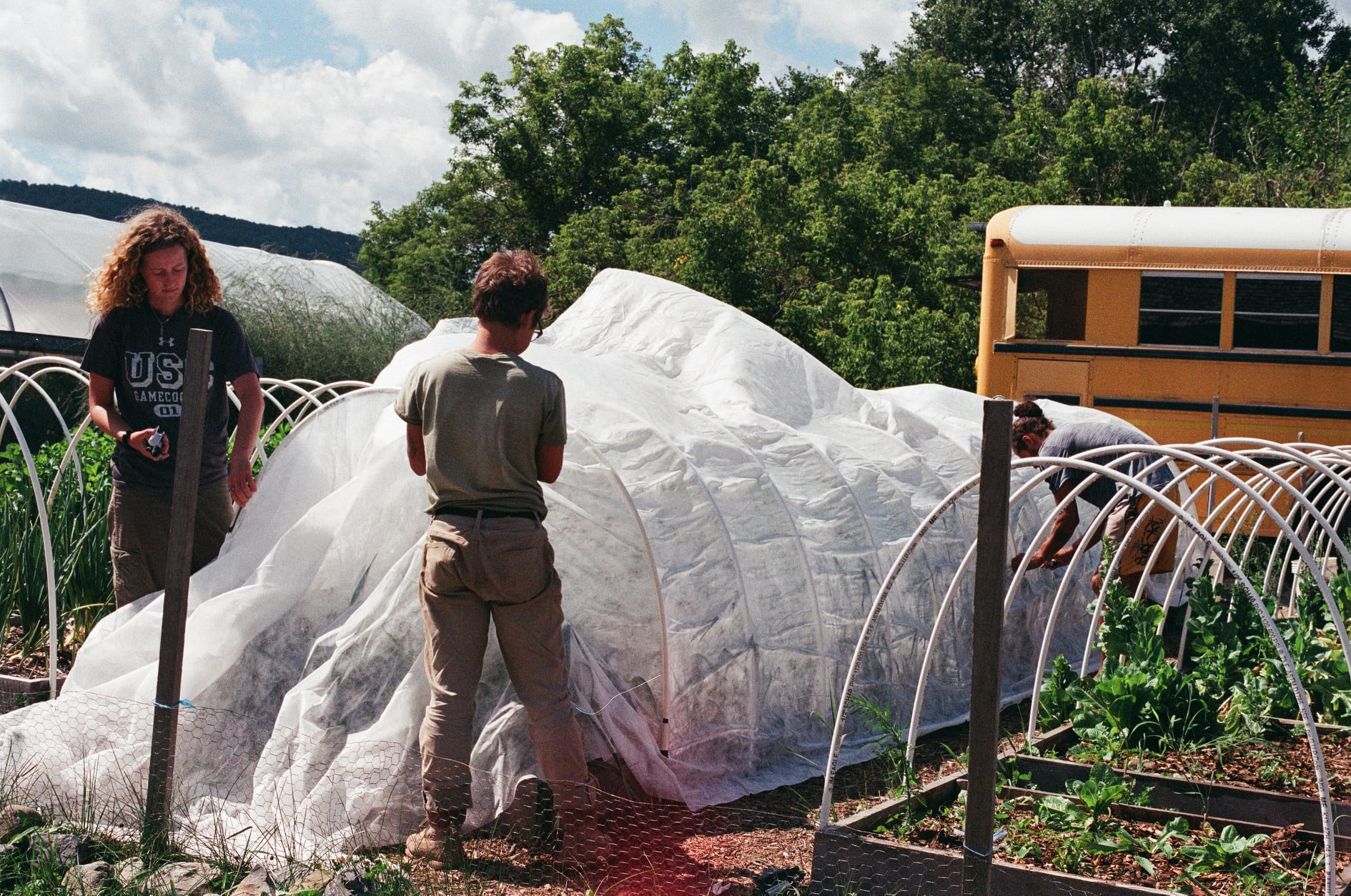
As an education center, Unadilla Community Farm is a site for experimentation and learning. We showcase a wide variety of sustainable farming techniques and conduct on-farm research to trial new methods, offer recommendations, and provide replicable models.
We have been the recipient of two Northeast SARE Farmer grants to conduct original research on-site. The first in 2020-2021 involved on-farm trials of dynamic accumulator plants and the second in 2022, carried out by Unadilla intern alumnus Matt Bedeaux, studied indigenous microorganisms (IMO). Read more about Unadilla Community Farm’s research and findings here.
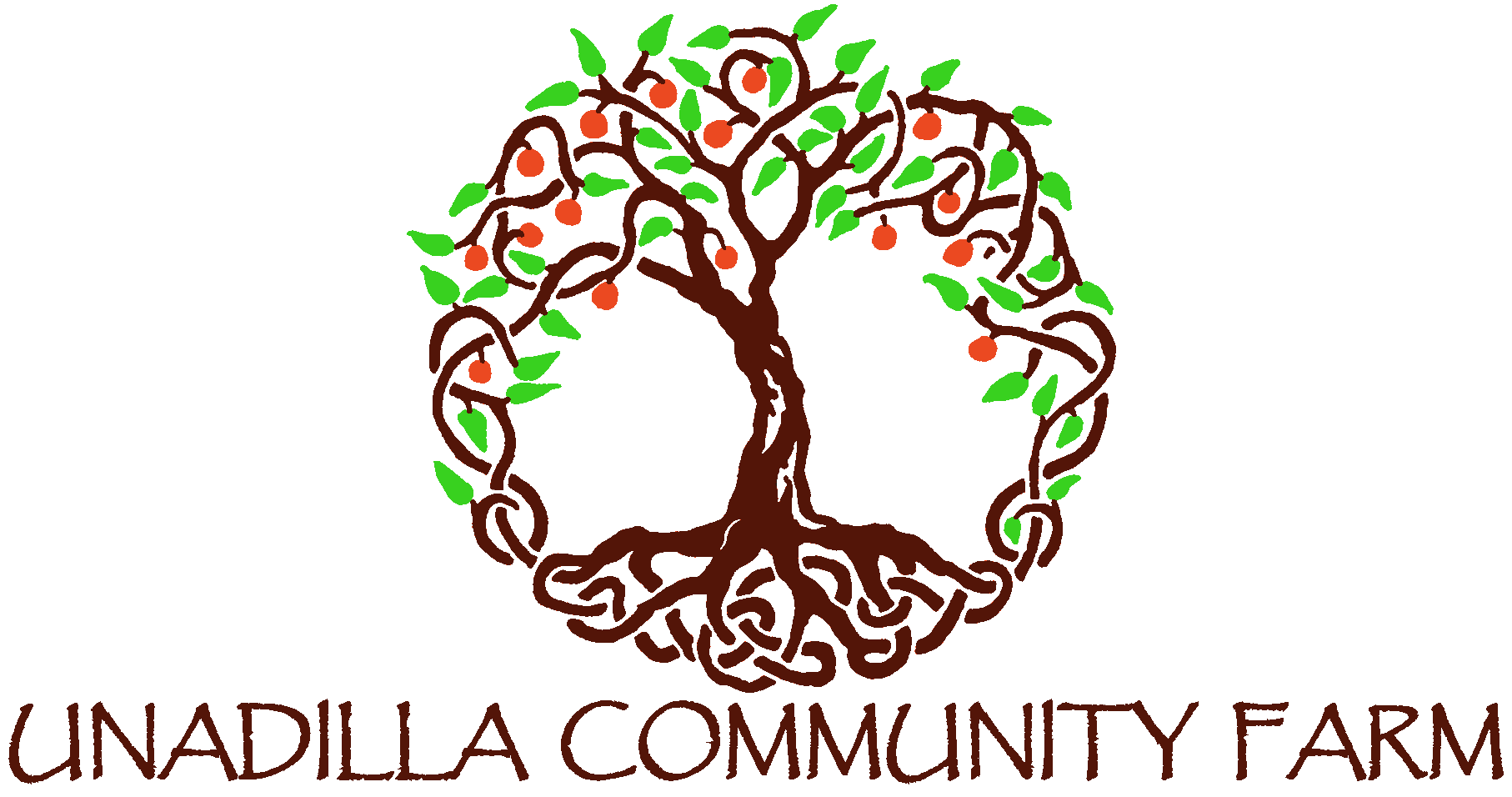
Sign up for occasional email updates about upcoming events, volunteer & job opportunities, farm happenings, and more.